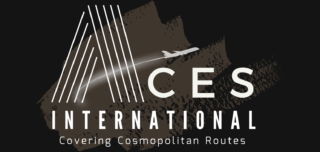The interview is the most challenging part of the process for most job seekers. After dozens of resumes and interviews, you are finally face-to-face with your prospective employer. But, even with all the preparation and practice, some interview questions are just plain tricky. Because no one wants to share an indiscreet piece of information, it can be hard to answer some of the more generic and awkward interview questions.
However, it’s these questions that have the biggest impact on employers and it could determine whether they decide to hire you for the position or not. This is why you must have a good idea of the different questions they could ask, and how you can answer them.
Let’s look at six examples.
What are your weaknesses?
Tricky questions tend to pop up during all stages of your career. They’re always tricky, whether at a job fair or during a job interview. While it’s tempting to use this opportunity to showcase your greatest strength, harder questions like these are often better answered with an answer that shows your weaknesses. The key here is to not focus on your weaknesses as weaknesses but rather on things you need to improve on. For example, if you are a perfectionist and feel that it is one of your greatest weaknesses, you can emphasize how you are going to trust the work that you do instead of spending more time than is needed on a particular task.
Why do you want to work here in our company?
When interviewing for a job, a question like this is common. The interviewer wants to find out what you value and whether the company matches your priorities. To ensure that you answer this question in the best possible way, you should spend some time researching the company, what they offer, and any future opportunities they provide. Not only will this show them that you have done your research, but it firmly tells them that you want to work there because of what they have to offer you.
Where do you see yourself five or ten years from now?
Interviewers ask this question because it gives them insight into your attitude and motivation levels. If they see your future as hazy and uncertain, they may be concerned that you will quit or take a lateral move after a few months. However, if you envision yourself building your career or becoming a leader in your profession, this shows the interviewer that you’re driven and motivated to succeed. Unsurprisingly, answering the question in this way will impress the interviewer greatly, putting you in a great position for the job.
What is your reason for leaving your current company?
This one can be tricky. On the one hand, you want to be honest because the interviewer may discover that you were terminated for misconduct if you don’t.
But you don’t want to appear disloyal because you could be labeled as someone difficult to work with. The answer to this is probably somewhere in the middle. If you honestly think your previous employer treated you unfairly, say so. If you didn’t, be honest too. In this situation, it may not be what you say, but how you say it, so be wary of the language you use and try not to come over as someone that bears a grudge.
Why is there a gap in your work history?
Most of us have gaps in our employment history. For most of us, the gaps are really the result of short-term temporary contracts. But that doesn’t mean we’re not qualified for the job. And besides, in most cases, employers understand the reasons people might be out of work. As long as you’re honest about the situation, they are usually willing to overlook those gaps. Honesty is definitely the best policy with this question.
Tell me about the time you made a mistake.
Interviewers love tricky interview questions. As humans, it’s nearly impossible for us to avoid making mistakes during our lifetimes completely. At the end of the day, it’s these mistakes that make us human. But in an interview setting, these mistakes can trip us up.
The best way to navigate this is by telling them of a mistake you made, but instead, focus on how this made you a better employee. Did it make you become more conscientious? Has it allowed you to improve your skills as a result? If you can, try and put a positive spin on the situation, as this will show them that this has changed you for the better.
Importance of how to answer tricky questions in an interview
One of the toughest parts of an interview is answering tricky questions. These questions can throw you off, and not knowing what to say can really hurt your chances. Remember, companies want someone who’s confident and good at thinking on their feet, so learn how to answer tricky questions in an interview.
It is a two-way street. Sure, you want to prove to the interviewer that you are the best person for the job, but you also need to convince the employer that you are the right person for the company. This means being personable and engaging in conversation but also professionally presenting yourself. One part of the process is answering the tricky questions that interviewers have designed to assess if you should advance to the next part of the process.
Preparing to answer these tricky interview questions and addressing them in the right way will help you land the job. However, never answer a question directly. Instead, provide a perspective or an example of a similar situation. This will demonstrate your personality, communication skills, and knowledge of the company.
Bear this in mind and you will be sure to land the job of your dreams. Good luck!

